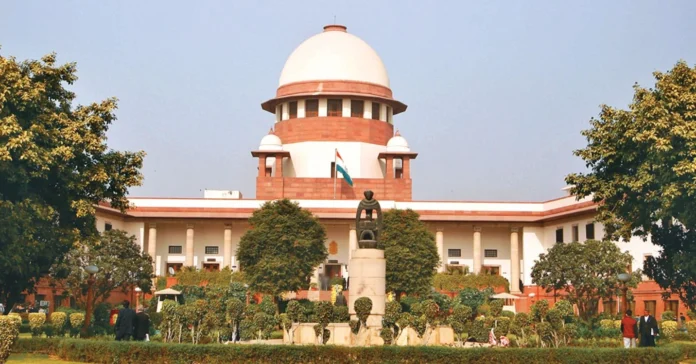The Supreme Court has again delayed hearing the bail applications of former JNU students Umar Khalid and Sharjeel Imam, along with three other accused, in the case connected to the alleged conspiracy behind the 2020 northeast Delhi riots.
On Friday, the matter came up before a bench consisting of Justices Aravind Kumar and Manmohan. However, Justice Manmohan chose to withdraw from the case, resulting in yet another adjournment. The case has now been listed for further hearing on September 22, 2025, but it remains uncertain whether the same bench will continue to hear it.
This is not the first time the bail proceedings have been postponed. Earlier, on September 12, the same bench had pushed the matter forward, explaining that the case records and related documents had reached the judges and lawyers’ residences quite late, making it impossible to properly study the extensive material in time.
The five petitioners in this case — Umar Khalid, Sharjeel Imam, Gulfisha Fatima, Meeran Haider, and Shifa-ur-Rehman — were all denied bail by the Delhi High Court on September 2. In its order, the High Court described the charges against them as “prima facie serious” and refused relief under the Unlawful Activities (Prevention) Act (UAPA), a stringent anti-terror law that makes securing bail extremely difficult.
The High Court emphasized that even though Umar Khalid was not physically present at the locations where violence broke out in February 2020, the prosecution had placed material to suggest his role in planning meetings and mobilization efforts ahead of the unrest. Similarly, the alleged involvement of Imam and others was considered to have gone beyond mere participation in protests and extended into a wider conspiracy.
The defense, however, has consistently argued that the accused are being unfairly targeted for their political views and their opposition to the Citizenship Amendment Act (CAA). Lawyers representing them have pointed out that the trial has hardly progressed in over three years: multiple supplementary charge sheets are still pending, and a large number of witnesses have not yet been examined. In this situation, they contend, keeping the accused in jail without bail amounts to a denial of basic rights.
The 2020 northeast Delhi riots, which erupted during protests against the CAA, led to over 50 deaths and widespread damage to property. The Delhi Police have claimed that the violence was not spontaneous but the outcome of a coordinated conspiracy, in which activists and student leaders allegedly played central roles.
The next date of hearing September 22 will determine whether the case moves forward or faces yet another delay.


